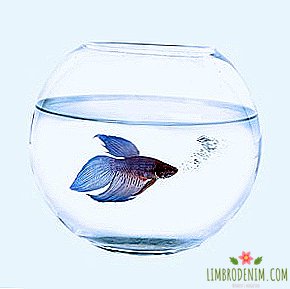How to eat in restaurants wisely and not to overeat: 5 life hacking
Text: Karina Sembe
For residents of big cities going to a restaurant from the ritual he managed to turn into a familiar substitute for a homemade dinner. Despite this, many of us still have a subconscious desire to “pamper” ourselves and try all the most unusual and tasty things on the menu. Of course, no one will forbid desperate hedonists to eat risotto pizza. But if situational overeating happens often, causes guilt feelings and leads to other extremes like refusal of food or healthy eating mania, it is important to avoid gastronomic swings and learn to eat moderately. For those who love to eat, but do not want to regret what they did after each dinner in a restaurant, we have 5 useful tips.

Reduce the amount of ingredients to a reasonable minimum.
The more ingredients in your lunch or dinner, the harder it is to keep track of their combinations. Goat cheese for an appetizer, milk soup with fish on the first and lamb skewers as a main dish will endure only strong stomachs. It is better to build an order around one thing, be it a portion of protein in the form of lean meat or fish, whole grains or a balanced vegetable dish. Choose simple options from one or two main ingredients: a good marinade and well-chosen seasonings will ensure the fullness of taste and aroma.
Lean on the "right" vegetables
One of the famous "healthy" life hacking - order more greens. Start with a mix of salads, and as a garnish, choose vegetables - baked or grilled. It is difficult to insure yourself against vegetables with pesticides, because the quality of the products depends on the good faith of the restaurateur, but grilled zucchini with mozzarella or garlic is in any case a more gentle snack than a double portion of hummus. By the way, the label "vegan", "vegetable" or "raw food" does not necessarily mean light and healthy. The basis for raw food pizza is often made from cashews, which can result in an unexpectedly heavy dinner with a value of 1000 kcal, and when frying tofu with vegetables usually use a large amount of butter.
Carefully choose meat and fish
Before ordering dishes from meat, fish and seafood, we advise you to be interested in their origin. You shouldn’t go into paranoia, but it’s not out of place to know what conditions the salmon used to live in before getting into your soup and what fed the cows for tenderloin - in any decent place they will gladly tell you about it.
Hormones and antibiotics are often used in cattle breeding, so ideally you should go to restaurants that work directly with environmentally conscious farmers. For many, this sounds like something from the realm of fantasy, but farmers' restaurants exist in Russia: for example, "LavkaLavka" and "Delicatessen" in Moscow, "Kokoko" in Petersburg, and "Ogonёk" in Vladivostok.
Feel free to ask the waiter
The work of the waiter is not limited to the function "bring-serve" and implies a delicate mediation between the visitor and the chef. It is worthwhile to be interested not only in where your food was before entering the kitchen, but also in how it is cooked - especially if you are prone to allergies or do not tolerate certain foods. Without a hint of embarrassment, ask what the fish marinates, how the meat is stewed and what a sauce is made of. Dressing for salads and sauces makes sense to ask separately - so you can control the amount in the dish, and if you wish, give up on them altogether.
Of all the dishes give preference to boiled, baked and cooked on the grill. In addition, you can always ask the chef to chop a tomato instead of a gourmet salad or to cook regular mashed potatoes, if the doctor prescribes a diet or you want something simpler. If you do not understand the meaning of the names of dishes, do not hesitate to ask: ordering a bisque, you will certainly get a fat soup with a lot of cream, and if you choose gratin, you will get something fried or baked with a lot of butter, covered with a layer of bread crumbs or cheese.
Wash down your food wisely
Around the water in the diet regularly formed myths of varying degrees of strangeness. For example, it is believed that she allegedly dilutes the gastric juice. Most physicians see no reason for such a conclusion: clinical studies have shown that water intake, as a rule, does not significantly change the acid-base balance of the stomach. Doctors say that drinking water during meals is even beneficial, especially if you have been without water for a long time: dehydration inhibits digestion.
Another installation is common on the Web: when we drink a cold drink after a meal, the proteins used are supposedly not broken down into amino acids, quickly leave the stomach and just rot in the intestines. Scientists agree that this is also a myth, not supported by research. So drink to health, if you want. True, many doctors do not recommend drinking strong alcohol, but it is not necessary to deny yourself a glass of good red wine paired with a steak.
Photo: Alena Vinokurova for The Village




